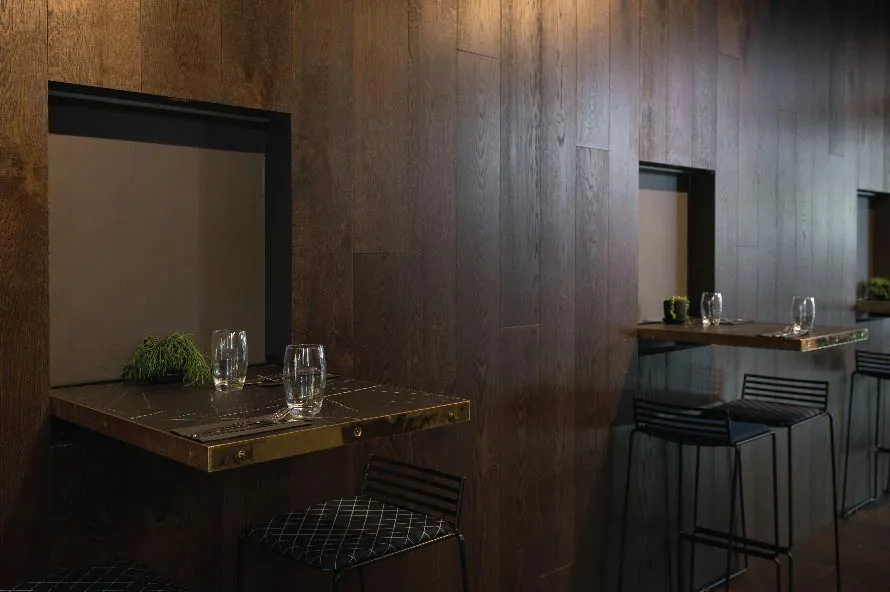
How to Avoid Delays when Sourcing Building Materials
Advice | September 20, 2021
Increased disruptions to the supply chain of New Zealand's construction industry have resulted in growing concerns over the delay in timings of projects and completion dates. So, what do international shipping and logistic delays, supplier product shortages, increased demand for timber and other building materials, and the difference in alert levels between Auckland and the rest of the country mean for suppliers, specifiers, and homeowners?
According to a supply chain report conducted in mid-late July, eight in ten building material suppliers said they were experiencing issues supplying the market because of supply delays and a spike in local demand for their products. While shipping and logistics have posed the biggest hindrance to supply, these issues have been exacerbated by increasing demand locally. As noted in the EBOSS Supply Chain Report 2021 this situation has “effectively given the construction industry a one-two punch to the stomach: constrained logistics cutting supply and increased demand spreading what supply we do have ever-thinner".
Unsurprisingly, this has resulted in cost increases for materials arriving in New Zealand and increases in pricing for suppliers, builders, and end consumers.
With building materials already in short supply due to post-pandemic shipping disruptions, further supply chain issues have arisen due to an increase in local spending with more people choosing to renovate and put money into their homes due to lockdown and not being able to go away on holiday or spend money on travel.
While the Government agreed to allow some building product manufacturing to take place in Auckland during the level 4 lockdown to support continued residential construction activity across New Zealand, the constrained availability of building products will continue to be a problem in the months to come.
With the current boom in the housing market and the constraints in product and material availability looking unlikely to ease soon, the industry will need to forward-plan and manage the situation closely. Patience and good project management in dealing with the supply issue will be required in the months to come, and good relationships and control over access to continued supply will be especially important going forward.
As there is no short-term solution to the supply/demand issue that we are currently facing, a concerted effort from stakeholders across the construction industry, including suppliers, architects, specifiers, builders, and clients is needed. Here are some recommendations for specifiers, trades and homeowner/clients which may help in keeping your project running to schedule:
Specifiers
Project Management and communication:
- Plan ahead and be upfront about when a project can realistically begin.
- Take lead times into account in specification and communicate with merchants/suppliers about what has been specified and when it is required on site.
- Clearly and continuously communicate up-to-date information to the homeowner/client.
- Have contractors involved in the project from early in the design phase (early contractor engagement) to allow for fast-tracking multiple consents so as to not delay the project.
- Early engagement with homeowners/clients with regards to product pricing and communication and transparency in letting them know what prices can and can’t be fixed.
- Consenting – don’t just look at consenting as a ‘tick in the box’, bring the council along early on and educate them on what you are trying to do by demonstrating how the design complies with the codes. Having pre-application meetings with council around building codes will mitigate any concerns or issues later in the project that may delay building consents being issued.
Securing product / managing supply chain:
- Once again, bringing the contractor in early on to allow for early ordering of product and easier booking of materials well in advance to plan for increased lead times.
- Stronger specifications of products/materials and better forecasting by architects so that it can be carried through the stages to construction and installation.
- Make it easier for substitution of materials by offering more options if there are delays.
Builders and Trades
- Reconsider what is realistic for a build programme, and communicate early with merchants, architects, specifiers, clients, and suppliers to ensure the programme runs smoothly.
- Manage the expectations of end clients around accessibility of product, ease of substitution, and speed of build.
- Order materials earlier than has been required in the past and keep suppliers in the loop about future requirements.
Homeowners/consumers
- Have realistic expectations of the completion of the project.
- Engage with your architect, designer, or builder earlier than initially planned.
- Make your product decisions early in the process and get your order in as soon as possible to allow for longer lead times.
- Get your deposit in earlier for your project or pay upfront for products as this will move the process along sooner.
- Be open to more product options in case your preferred option has a longer lead time.
How is Forté managing the supply chain crisis?
- We have a dedicated team of project managers who are frequently getting updates on project delays so we can allocate stock to those who need it most.
- By using the fastest shipping lines, we’re able to get your product to New Zealand more quickly.
- Having our operations team in constant communication with our local carrier and courier partners, and ensuring goods are prepared for dispatched ahead of required timeframes, helps avoid further delays.
- We work with our suppliers to ensure product is dispatched earlier than needed and stored on site to avoid delays when product is required. We have also expanded our warehouse capacity to allow for the extra influx of shipments ahead of the timber shortage.
- We reduce lead times by working with manufacturers geographically closer to New Zealand.
- By spreading our supply chain with a wider variety of world-leading manufacturers we have been able to increase our supply volume.
- Our team of experts are continuously forward planning and forecasting with our suppliers, ensuring shipment movements and up-to-date information are being communicated to the project leaders and clients.
As always, Forté aim to be as helpful and accommodating as we can during this challenging time. While we may not have every product available, we have most colours and alternatives in stock and ready to order with little lead times. Please get in touch with us and we’ll do our best to meet your requirements.
Call our team of experts on 0508 35 66 77, email us at [email protected] or live chat with us on our website. Alternatively, you can book a Project Discussion from the homepage on our website.










